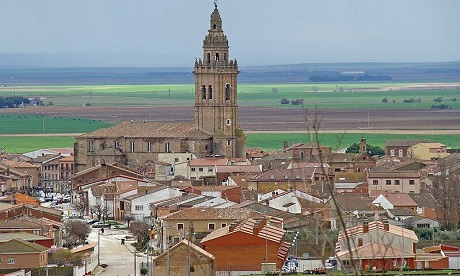An ongoing rural ministry priest shortage in the Spanish region of Castile has bishops, vicars and deans looking for new ways to serve.
The problem is urgent, as what worked in the past when there were plenty of priests doesn’t work today.
“We cannot expect things to change if we always do the same thing” says Archbishop Luis Argüello.
“To have different results, you have to do different things” he added.
The challenge
- Only 16 percent of people live in rural areas. Over 80 percent of Spanish municipalities are rural. Most people are Catholic. There are churches serving tiny populations everywhere.
- Priestly vocations are declining. Castile’s nine dioceses have 1,505 priests, but only 39 seminarians.
- Priests’ average age is close to 70 years.
- Rural parish life could become little more than the occasional celebration of the Eucharist when the priest serves several communities.
“It’s very tiring, life is hard. How can priests of those ages serve 10 or 15 towns? And some younger ones serve people from as many as 40 small villages” one says.
The priest shortage means one priest celebrates Mass on Sundays in the two or three places he can, then another two or three communities get Mass the next Sunday.
He also travels to villages when people die and for patron saint festivals.
Fr Jorge González Guadalix of the Archdiocese of Madrid says he is more in favour of celebrating the Eucharist once a month in smaller communities than promoting other options such as lay-led liturgies.
González says it doesn’t matter if the neighbouring Church is just 4km away – people want their church, with its saints, altarpiece and community.
Forming pastoral teams
Pastoral teams based in somewhat larger towns from which other villages are served are working elsewhere in Spain.
This means that although a priest remains canonically responsible for 30 villages, he isn’t managing alone.
The ‘pastoral units’—composed of priests and religious—would care for the little towns and their seasonal population changes.
Castile’s expanding dormitory communities would also benefit from the pastoral units. Established close to cities, these communities typically have more young people and migrant populations.
Lay-led Sundays
Increasing lay-or deacon-led Sunday celebrations of the Word is another option.
The Vatican’s Dicastery for Clergy and the Congregation for Divine Worship is not keen. It “blurs the figure of the priest and makes people used to living the faith without priests” a priest says.
He says many already feel the church doors are always closed or that there is no contact with the priest. Fewer people participate in the Church’s ministry because there is a feeling of abandonment.
Centralising Mass (but it doesn’t work)
It is possible to centralise the Mass in regions with slightly larger populations. However Catholics haven’t warmed to this idea. They like their local community where they are known and don’t want to travel to Mass.
For González, it is a matter of putting his eyes on God first, reaching out to the people and evangelising with all the means available.
Source
